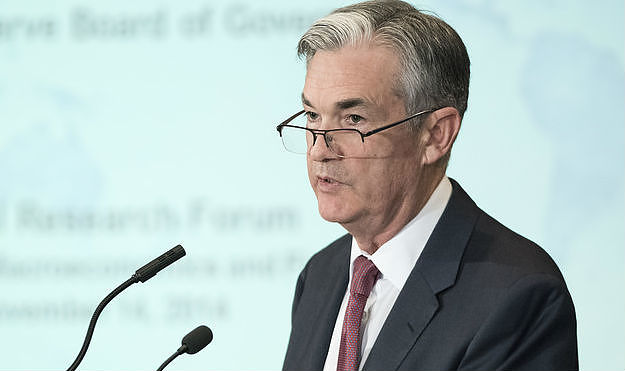Investors aren’t buying the Fed’s hawkish posturing

As warning signs for the economy mount, investors are cheering for more bad news. That's because they expect economic weakness will force the Federal Reserve to stop raising interest rates and eventually re-embrace loose monetary policy.
One reliable indicator over the years of an upcoming recession is an inverted yield curve. An inversion occurs when short-term interest rates rise above long-term rates.
Typically, a 3-month Treasury bill or 2-year note will yield less than a 10-year note or 30-year bond. Shorter-duration debt instruments entail less risk and therefore deliver less reward under normal circumstances. But over the past four months, short-term IOUs have begun to yield more than longer-term paper.
This week, the yield on the 10-year Treasury fell to 3.7%, while the 2-year rose to 4.4%. That represents the biggest yield curve inversion in decades.
And as institutional futures trader and broker Jim Iuorio notes, the current inversion implies strongly that a recession is coming.
Jim Iuorio: A normal sloped yield curve has longer term bonds paying higher interest rate than shorter term. The higher rate is a reward for being willing to lock up your money for longer periods of time. Economists believe that an inversion of yields is a warning sign for coming recession, as investment money seeks the safety of longer-term bonds, helping to keep those yields from rising while at the same time, in this instance, that the Federal Reserve is forcing up short-end rates through hikes.
The yield curve has inverted before each recession dating back to 1955, with the recession starting between six and 24 months after the inversion. Ultimately, the curve's current lesson could be that the market believes that the Fed's aggressive hikes to fight inflation could lead to both recession and the need to quickly lower rates at some time in the future.
The U.S. economy technically dipped into a recession in the second quarter when GDP came in negative for a second consecutive quarter. At that time, however, the jobs market remained strong and the housing sector had only just begun to show signs of softening.
The double dip downturn that many economists see coming in 2023 could result in millions of job losses and a major retrenchment in home prices. The stock market will obviously be vulnerable as well.
As for precious metals markets, they have often shown relative strength during previous recessions. They have also tended to get a boost when an inverted yield curve starts to normalize. That would be expected to occur when the Fed begins to cut its benchmark short-term rate.
For now, though, central bankers are vowing to keep hiking. On Thursday, James Bullard, president of the Federal Reserve Bank of St. Louis, said the Fed funds rate will likely rise higher than previously expected. He said the current rate isn’t “sufficiently restrictive” in light of inflation that remains stubbornly high. According to Bullard, rates may have to move up to as high as 7%.
Most investors don’t seem to be buying Bullard’s hawkish posturing. Financial markets are pricing in a 50-basis point hike at the Fed’s next meeting but not much more hiking after that.
The sharp drop in the U.S. Dollar Index last week means currency traders are looking for the Fed to become more dovish. The dollar managed to rebound only slightly versus foreign currencies on Bullard’s remarks.
Precious metals markets, meanwhile, are giving back some of their recent gains. However, bullion buying among retail investors continue to be robust amid tight supplies of available products from major mints.
It doesn’t appear that the election results will have a significant impact on investor sentiment toward metals, as not much is going to change in Washington. President Joe Biden will still be able to ram through appointments requiring Senate confirmation. The Upper Chamber will continue to be controlled by Chuck Schumer and the Democrats.
The House of Representatives will be narrowly controlled by Republicans. They announced their intention this week to launch investigations into some questionable financial dealings of Joe and Hunter Biden. That may score House Republicans some political points, but they won’t be able to produce any major legislative accomplishments without support from Democrats and ultimately a signature of approval by Joe Biden.
The influence of elected officials on the economy and markets will continue to be overshadowed by central bankers who seem intent on inducing a recession in order try to tame the inflation monster they unleashed.
Other central banks around the world, meanwhile, are growing wary of holding Federal Reserve notes and other forms of fiat as reserves. Many central banks are aggressively stockpiling hard money reserves in the form of gold.
Global central bank purchases surged to nearly 400 tonnes in the third quarter. That represents the largest single quarter of monetary demand for gold on record.
It also marks the eighth consecutive quarter of net purchases by central banks. The year-to-date total is already higher than any other year total since 1967.
These are estimates by the World Gold Council which notes that some countries underreport their actual holdings. Some may be secretly accumulating more than the Council estimates while other could be exaggerating their reserves.
But the trend of rising monetary demand for gold is indisputable. With inflation now hitting double digits in Europe and the Federal Reserve still unable to get U.S. price levels anywhere near back down to target, it’s no wonder gold is in high demand.
To receive free commentary and analysis on the gold and silver markets, click here to be added to the Money Metals news service.
Author

Mike Gleason
Money Metals Exchange
Mike Gleason is a Director with Money Metals Exchange, a national precious metals dealer with over 500,000 customers.
















